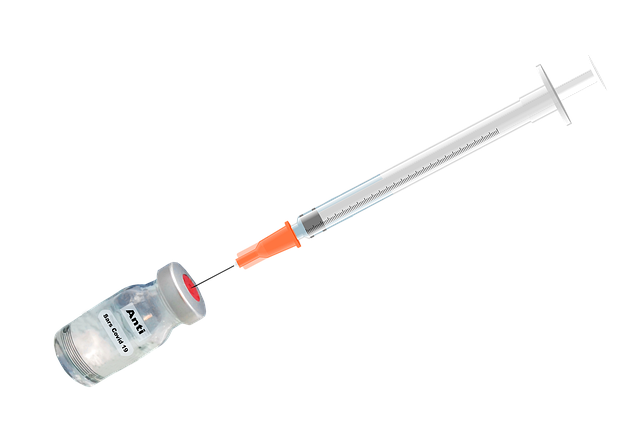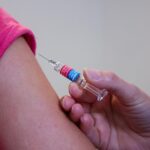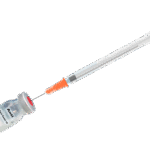As a parent, ensuring your child’s health and well-being is one of your top priorities. One of the most important steps in protecting your child from preventable diseases is keeping up with their childhood vaccinations. Vaccines not only safeguard your child’s health but also contribute to the broader public health by preventing the spread of contagious diseases.
In this comprehensive guide, we’ll walk you through everything you need to know about childhood vaccinations, including the importance, recommended schedule, and answers to common questions and concerns.
Why Are Childhood Vaccinations Important?
Childhood vaccinations are critical for preventing serious and sometimes life-threatening diseases. These vaccines are designed to protect children from infections that can cause severe illness, complications, or even death. Diseases like measles, whooping cough, polio, and hepatitis B were once common, but thanks to widespread vaccination, they are now rare in many parts of the world.
Vaccines work by stimulating the immune system to recognize and fight specific pathogens (bacteria or viruses) without causing the disease itself. Once vaccinated, your child’s body is better prepared to fight off these pathogens if they are ever exposed to them in the future.
The Childhood Vaccine Schedule What to Expect
Vaccines are administered at specific ages to ensure the immune system is strong enough to respond effectively. The Centers for Disease Control and Prevention (CDC) and the World Health Organization (WHO) recommend a set vaccination schedule for children that provides the best protection.
Here is a general overview of the recommended childhood vaccine schedule in the U.S., as outlined by the CDC
Birth – 6 Months
-
Hepatitis B (HepB)
-
Diphtheria, Tetanus, and Pertussis (DTaP)
-
Haemophilus influenzae type b (Hib)
-
Polio (IPV)
-
Pneumococcal (PCV13)
-
Rotavirus (RV)
-
Measles, Mumps, Rubella (MMR)
-
Varicella (chickenpox)
-
Hepatitis A (HepA) (first dose at 12-23 months)
6 – 18 Months
-
Diphtheria, Tetanus, and Pertussis (DTaP) (3rd dose)
-
Hib (Haemophilus influenzae type b) (4th dose)
-
Polio (IPV) (3rd dose)
-
Pneumococcal (PCV13) (4th dose)
-
Measles, Mumps, Rubella (MMR) (1st dose)
-
Varicella (chickenpox) (1st dose)
-
Hepatitis A (HepA) (2nd dose)
4 – 6 Years
-
Diphtheria, Tetanus, and Pertussis (DTaP) (5th dose)
-
Polio (IPV) (4th dose)
-
Measles, Mumps, Rubella (MMR) (2nd dose)
-
Varicella (chickenpox) (2nd dose)
11 – 12 Years
-
Tetanus, Diphtheria, and Pertussis (Tdap) (booster)
-
Human Papillomavirus (HPV) (2-dose series, starting at age 11)
-
Meningococcal (MenACWY) (first dose)
16 – 18 Years
-
Meningococcal (MenACWY) (second dose)
-
HPV (if not already completed)
It’s important to note that some vaccines require multiple doses over a period of time to be fully effective. Parents should stay on top of the vaccine schedule to ensure their child gets the proper immunizations at the right times.
Are Vaccines Safe for My Child?
One of the most common concerns among parents is whether vaccines are safe. The short answer is yes vaccines are extensively tested for safety before they are approved, and they continue to be monitored after approval for any adverse effects. Vaccines undergo rigorous testing through clinical trials to ensure they are both safe and effective.
In fact, vaccines are among the safest medical interventions available. The side effects of vaccines are typically mild and temporary, such as a sore arm or slight fever. Serious side effects are extremely rare, and the benefits of immunization far outweigh the risks.
The Centers for Disease Control and Prevention (CDC) and the World Health Organization (WHO) provide evidence-based information to help parents make informed decisions about vaccinations.
Common Myths and Misconceptions About Vaccines
Despite the overwhelming evidence supporting the safety and efficacy of vaccines, some parents may still have concerns due to common myths and misconceptions. Let’s address a few
1. Vaccines Cause Autism
This myth has been thoroughly debunked by multiple large-scale studies. There is no scientific evidence to support any connection between vaccines and autism. The initial study that suggested this link was retracted, and its findings have been discredited.
2. Natural Immunity Is Better Than Vaccine-Induced Immunity
While natural immunity can provide protection, it often comes at a high cost illness, hospitalization, or even death. Vaccines offer a safe way to develop immunity without having to go through the potentially dangerous experience of contracting the disease.
3. Vaccines Contain Harmful Ingredients
Vaccines contain tiny amounts of ingredients that help the vaccine work effectively, such as preservatives or stabilizers. These ingredients are present in very small quantities and have been proven to be safe. The amount of preservatives in vaccines is far below the levels that would pose a risk.
4. Vaccines Are Only for Children
Vaccines are crucial for people of all ages. Many adults need booster shots or vaccines that they missed during childhood. It’s important to keep up with vaccines as your child grows and into adulthood.
Why Should You Keep Your Child’s Vaccines Up-to-Date?
Staying on schedule with your child’s vaccinations ensures that they are fully protected from preventable diseases. Skipping or delaying vaccines can put your child and others at risk for contracting serious diseases. Additionally, when children are vaccinated, they help protect others through herd immunity, preventing the spread of contagious diseases to those who may be vulnerable (such as infants, elderly individuals, or people with compromised immune systems).
Protecting Your Child and Community
Childhood vaccinations are one of the most important ways to protect your child from preventable diseases. By staying on top of your child’s vaccine schedule, you are not only safeguarding their health but also contributing to the health of your community. Vaccines save lives, prevent illness, and ensure a brighter future for your child and generations to come.
If you have any questions or concerns about your child’s vaccination schedule, talk to your healthcare provider. Stay informed, stay safe, and ensure that your child receives all the necessary immunizations to protect their health.


